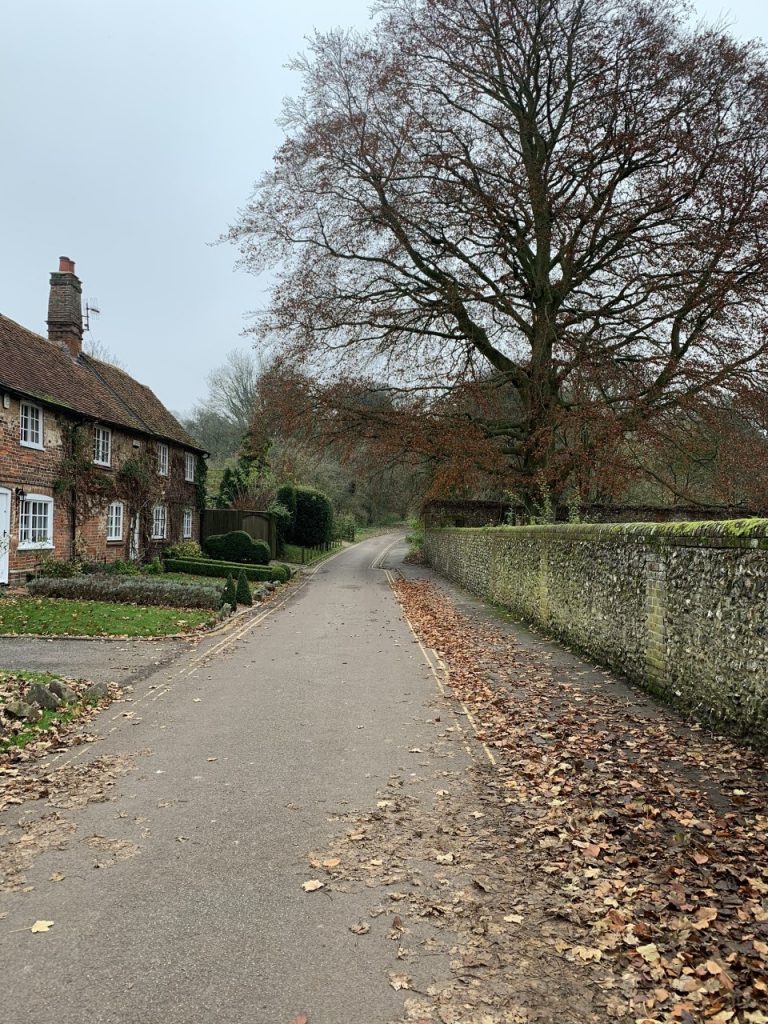
Hello, my name is Niamh McHugh and I am currently at the beginning of my final year of my PhD. I am a part of the Midlands ESRC DTP Training Pathway, holding a joint studentship at Loughborough University and the University of Leicester and supervised by Martin Phillips and Darren Smith. My research project is concerned with the digital marketing of rural real estate and consequently how digital marketing is influencing processes of rural gentrification in the UK. In writing this I aim to provide a brief summary of my research, and also reflect upon the significance of digital marketing in light of the current global pandemic, COVID-19.
Labelled as a ‘love affair’ with the countryside, the association that some British people have with the rural is clear to see, from the publications of magazines such as Farm and Country, to TV shows such as Countryfile and Escape to the Country. This association is often associated with concepts such as the rural idyll, and media representation often centre on the realisation of an aspirational desire to have a home in the countryside. This desire can be seen to reflect a wider for home ownership that has long been strongly promoted within the UK, not least through a series of Government policies as well as promotions by the UK real estate and housing development industries. The desires for home ownership and rural living can also be seen to be seen to be increasingly constructed through agencies specialising a segment of their company to focus purely on rural and/or country properties.
In the UK alone, 41.5 million people use the internet daily (Statista 2020) and with the power of digital marketing, estate agencies possess an audience reach which may appear boundless. Coupled with the power of digital marketing, estate agents have the ability to guide homebuyers to certain properties and are in turn are central actors who facilitate processes of rural gentrification. Evidence of this process can be seen in a number of rural areas across the UK and property advertising appears to make strong use of idyllic images and narratives of the rural.
Digital technologies may be seen as essential tools in bringing these images and narratives to life and circulating them to potential rural dwellers. Utilising technology such as drone photography and virtual walk throughs, estate agents are construct able to construct imagery that they think will attract buyers, potentially from digitally determined target social groups, and creating virtual experiences of what owning a rural property could be like without the costumer having to leave their homes. As such, these technologies could attract new migrants into rural areas, or attract migrants into a new set of rural locations. This research is concerned with evaluating the impact of digital marketing on processes of rural gentrification and whether it constitutes a further, and significantly different, driving force in the gentrification of rural areas in the UK.
Undoubtably the current COVID-19 global pandemic is changing the way we all live our lives, with one of the most notable features being how many people have been required to work from home. With this increase, many newspapers are reporting on the increased surge of people searching for properties in rural areas, with The Guardian suggesting a ‘rural renaissance’. The rise in people searching for rural homes has been clearly facilitated by digital marketing platforms, not least because during the pandemic, platforms such as agency’ websites, have been central to keeping estate agencies ‘doors’ open.
Twitter Account: @NiamhMcHugh6
References:
Statista (2020) Number of daily internet users in Great Britain from 2006 to 2020(in million users). Available at: https://bit.ly/2LtvuQD.
The Guardian (2020) Homebuyers ‘plotting move to country’ amid increased home working. Available at: https://bit.ly/3ndiLPO .